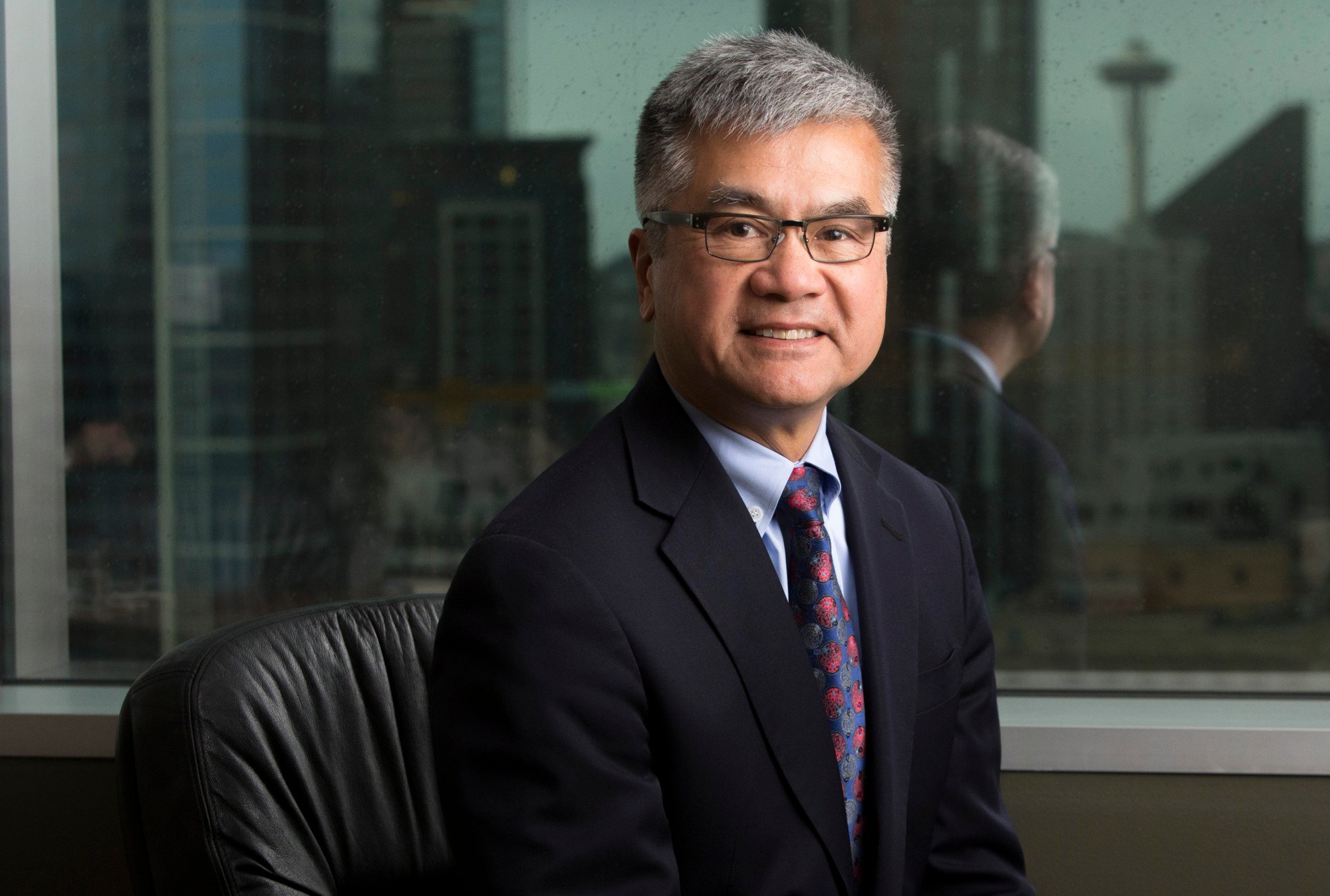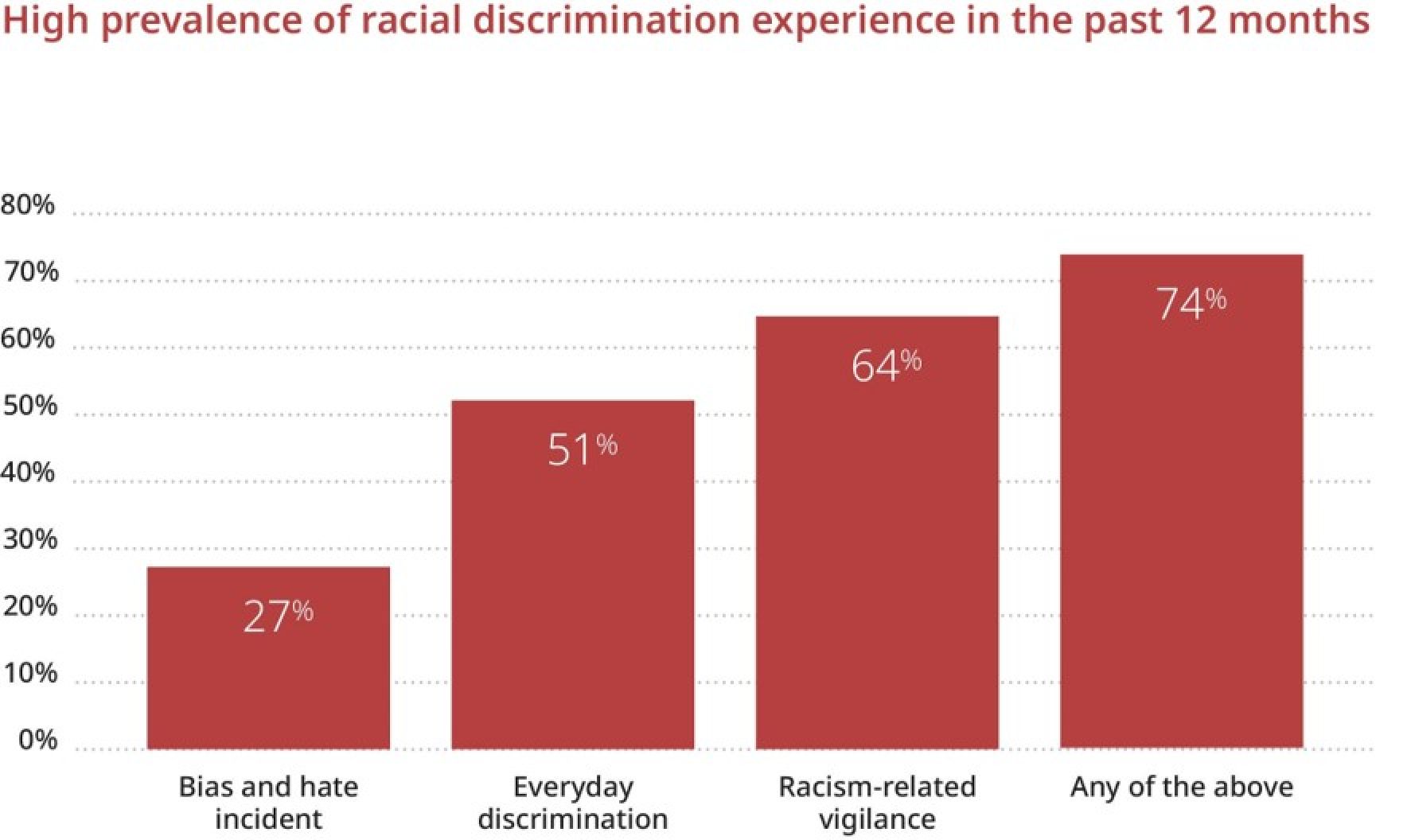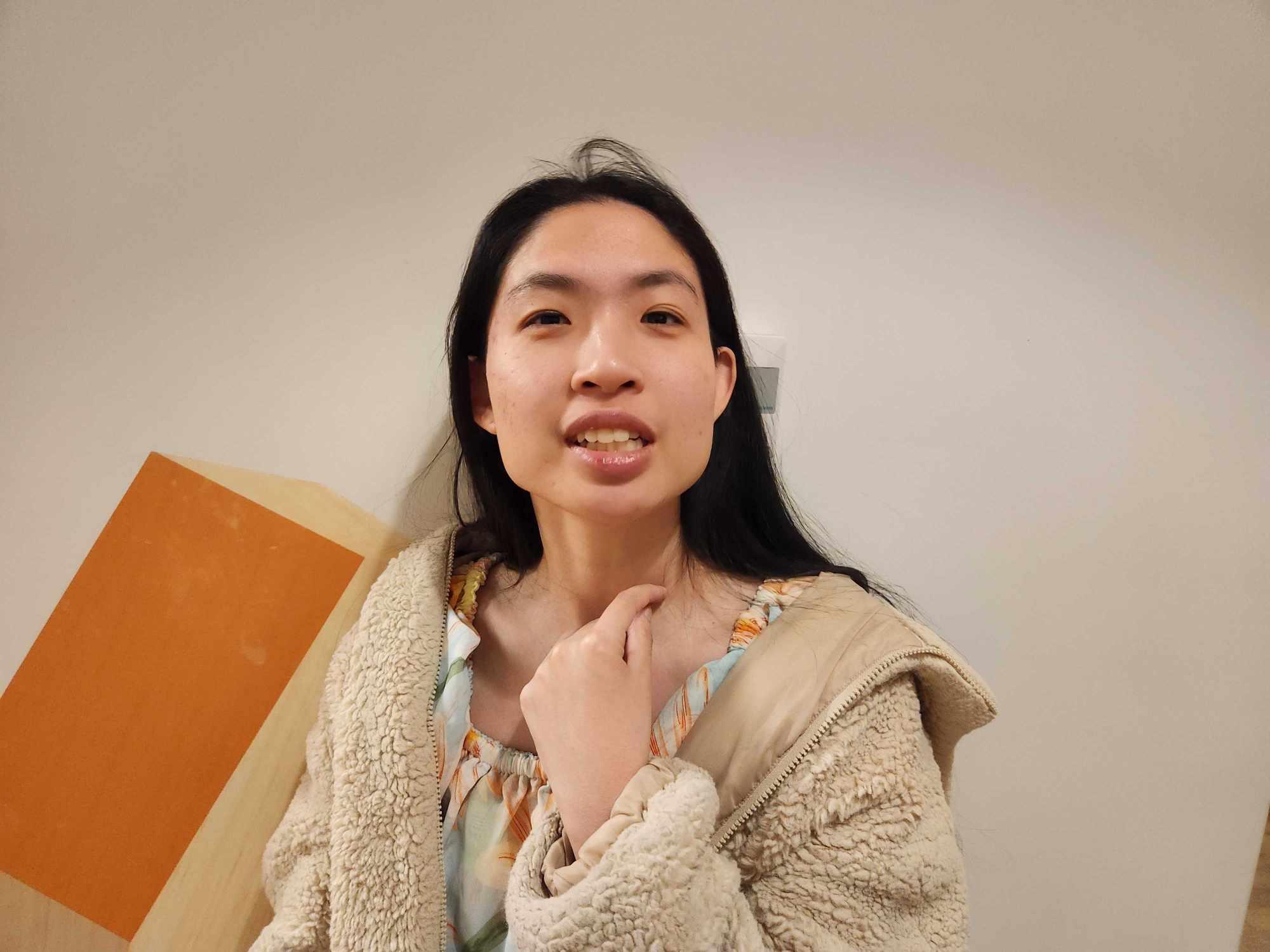
Most Chinese-Americans say racial discrimination and hate crime fears plague their life, survey finds
- Community members are increasingly active politically, multilingual at home and more diverse economically than widely portrayed, study also reveals
- First-of-its-kind survey by civic group Committee of 100 and Columbia University drew on 6,500 respondents from 46 states
Lotus Zhang, an English-Chinese hospital interpreter who lives in New Jersey and works in Manhattan, said never in her life has she been attacked physically.
Nearly three quarters of Chinese-Americans report experiencing racial discrimination in the past year while 55 per cent worry about hate crimes or harassment, according to a study released on Thursday by the civic group Committee of 100 and Columbia University.
The study, titled “The Fight for Representation: The State of Chinese Americans Survey”, also found that Chinese-Americans were increasingly active politically, often speak multiple languages at home and were far from homogenous even as society frequently typecasts them as monolithic.

“The Chinese-American population is one of the fastest-growing ethnic groups in the United States, yet it remains under-represented in politics and policy, and underserved in healthcare, education and social services,” said Gary Locke, president of Washington state’s Bellevue College and the Committee of 100 chairman, in a statement.
As of 2021, there were 5.5 million Chinese-Americans in the US, up from 4 million in 2010.
“This is a group that is both politically active and engaged,” the former US ambassador to China added.
Thursday’s survey, among the largest and most comprehensive ever done on Chinese-Americans, aims to paint a more three-dimensional picture of one of the fastest-growing voter groups in the US.
It took a year to compile and drew on 6,500 respondents from 46 states answering questions on racial identity, politics, health, economic security and social engagement.
‘China is not our enemy’: US House hearing protest shows rising impatience
“Getting disaggregated, accurate and comprehensive data on Chinese-Americans will help inform policymakers and the public of the diverse set of opinions, perceptions and needs of Chinese-Americans across the country and develop timely and responsive policies, programmes and services to address those needs,” the group said in a statement.
While the vast majority of Chinese-Americans said they were accepted in American society and able to navigate easily between US and Chinese cultures, many also felt marginalised and said they experienced discrimination in their daily lives.
Nine per cent said they had been physically intimidated or assaulted and 7 per cent said they had seen their property damaged. Nearly half reported being treated with “less respect” than other people, while 20 per cent said they were the object of racial slurs or had been harassed in the past 12 months.

While Chinese-Americans are routinely considered a healthy, wealthy, even “perfect” model minority, Thursday’s survey results underscored some of the complexities and challenges they face.
Nearly one in four Chinese-Americans said they felt moderate to severe psychological distress, including feelings of worthlessness, depression, hopelessness, restlessness, nervousness or a sense that doing anything required effort.
Chinese make up the largest group within the diverse Asian-American community, which has the highest median household income in the US but also the greatest gap between wealthy and impoverished.
Far from universally prosperous, some 10 per cent of Chinese-American respondents reported annual household income of less than US$15,000 while 9 per cent said they struggled to pay food or other bills in the past 12 months.
California shootings highlight Asian-American trials, US gun culture
Zhang, a Beijing native in her mid-20s, described many of her friends as young Asian urban professionals, or “yappies”, working as software engineers at investment banks or in other high-paying jobs.
Growing interest in US politics among Chinese-Americans has been spurred on in part by the US presidential candidacy of lawyer and entrepreneur Andrew Yang in 2020, she said.
Yang’s candidacy “wasn’t realistic, but he made a loud noise and many felt some hope”, Zhang said. “As in every Asian group, there are some who are elite and choose to stay in their own circle.”
But Zhang – who came to the US during high school to avoid the gaokao, China’s college entrance exam regarded as one of the most challenging worldwide – said her work as a medical translator exposed her to some of the very poorest in the local Chinese-American community.

They include those afflicted with cancer or other serious health problems as well as people lacking English language skills or unable to pay their medical bills.
“Many really need help,” she said. “This is a very poor community that requires a lot of government attention.”
The Committee of 100, founded in 1990 by architect I.M. Pei, sees the study as a way to help bridge the gap between Chinese-Americans and other US communities.
Respondents who live in the US and self-identify as of Chinese-ethnic origin were not paid for their answers, and written questions were posed in English, simplified Chinese and traditional Chinese for participants.
“I am confident that the findings will have a profound impact in our efforts to work towards a more inclusive and equitable society for all,” said Zhengyu Huang, the group’s president.

